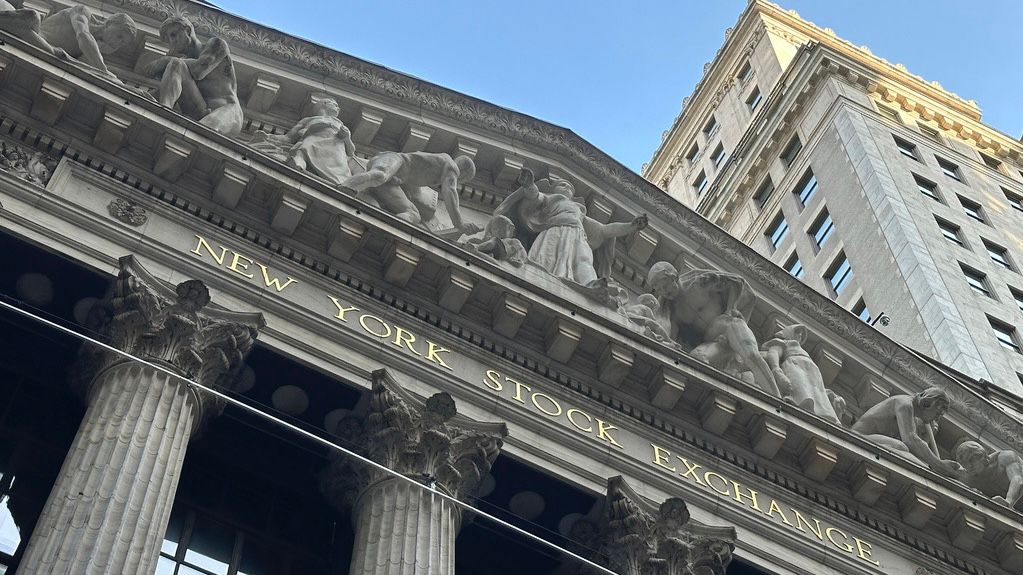U.S. stocks ticked to more records Monday ahead of a week with several top-tier reports on inflation due, as well as the Federal Reserve’s latest meeting on interest rates.
The S&P 500 rose 13.80 points, or 0.3%, to 5,360.79 and topped its all-time high set last week. The Nasdaq composite also set a record after rising 59.40, or 0.3%, to 17,192.53, while the Dow Jones Industrial Average gained 69.05, or 0.2%, to 38,868.04.
Southwest Airlines flew to one of the market’s biggest gains, up 7%, after Elliott Investment Management said it’s taken a $1.9 billion ownership stake in the company and is pushing for new leadership to modernize the carrier’s software, strategy and operations.
Diamond Offshore Drilling jumped 10.9% after Noble agreed to buy its rival in a cash-and-stock deal valued at roughly $1.6 billion. Noble added 6.1% in a signal that traders expect the combination to be a winner. Other energy producers also climbed as the price of crude oil recovered some of its sharp losses since the spring.
Huntington Bancshares dropped 6.1% for one of the market’s largest losses after cutting its forecast for a key component of profit this year.
Apple fell 1.9% following a highly anticipated conference where it showed how its operating systems will use ChatGPT to offer services using artificial-intelligence technology. A furor around AI broadly on Wall Street has helped send stocks to records despite worries about high interest rates and the slowdown in the U.S. economy that they induce.
Data on the economy have come in mixed recently, and traders are hoping they will ultimately show a slowdown that stops short of a recession and is just right in magnitude. A cooldown would put less upward pressure on inflation, which could encourage the Federal Reserve to cut its main interest rate from its most punishing level in more than two decades.
But the data have been tough to parse, with Friday’s stronger-than-expected jobs report quickly on the heels of weaker-than-expected reports on U.S. manufacturing and other areas of the economy. Even within U.S. consumer spending, the heart of the economy, is a sharp divide between lower-income households struggling to keep up with still-high inflation and higher-income households doing much better.
“Bottom line, the data remains mixed, leaving all of the major macro outcomes still on the table for this year,” according to Morgan Stanley strategists led by Michael Wilson.
In the meantime, companies benefiting from the AI boom are continuing to report big growth almost regardless of what the economy and interest rates are doing.
Nvidia, for example, is worth roughly $3 trillion and rose 0.7% Monday after reversing an early-morning loss. It was the first day of trading for the company since a 10-for-one stock split made its share price more affordable to investors, after it ballooned to more than $1,000 amid the AI frenzy.
Treasury yields were mixed in the bond market ahead of reports later in the week that will show whether inflation improved last month at both the consumer and wholesale levels.
On Wednesday, the Federal Reserve will announce its latest decision on interest rates. Virtually no one expects it to move its main interest rate then. But policy makers will be publishing their latest forecasts for where they see interest rates and the economy heading in the future.
The last time Fed officials released such projections, in March, they indicated the typical member foresaw roughly three cuts to interest rates in 2024. That projection will almost certainly fall this time around. Traders on Wall Street are largely betting on just one or two cuts to rates in 2024, according to data from CME Group.
In the bond market, the yield on the 10-year Treasury rose to 4.46% from 4.43% late Friday. The two-year yield, which more closely tracks expectations for the Fed, slipped to 4.88% from 4.89%.
In stock markets abroad, France’s CAC 40 index sank 1.3% after French President Emmanuel Macron dissolved the National Assembly following surprising results in elections for the European Parliament. Far-right parties made gains, and the value of the euro dropped. Other indexes also fell in Europe, though not by as much as France’s.
Markets in Asia were mixed. Tokyo’s Nikkei 225 index rose 0.9% after data showed Japan’s economy shrank by less in the year’s first three months than earlier thought. South Korea’s Kospi fell 0.8%, while markets were closed in Shanghai, Hong Kong and Australia for holidays.



